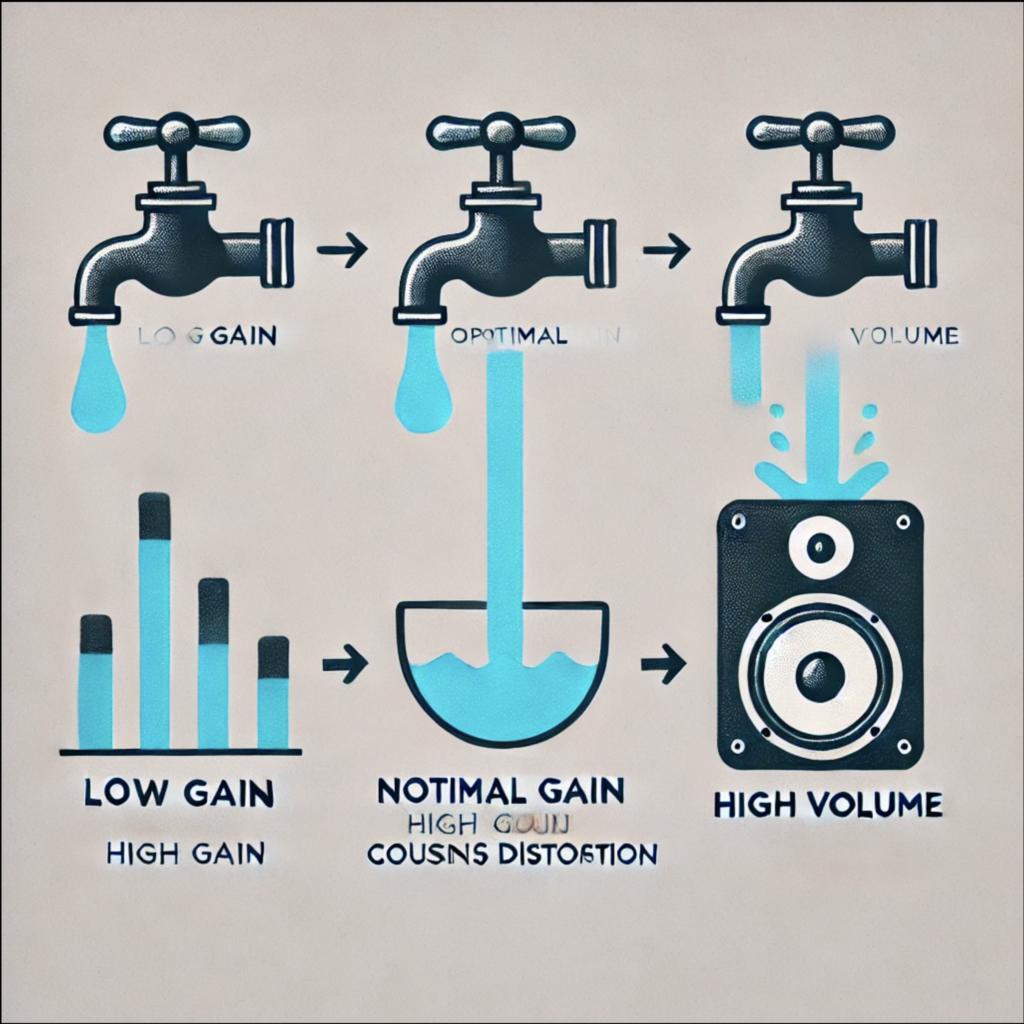Gain vs. Volume
If you’ve ever turned up your music, played an instrument, or recorded your voice, you’ve probably seen the words gain and volume. They might seem like they mean the same thing, but they actually do different jobs. Knowing how they work can help you get the best sound whether you’re listening, playing, or recording. Let’s break it down in a simple way!
What Is Gain?
Gain controls how strong the sound is before it goes through speakers or headphones. It determines how much sound is picked up by a microphone, guitar, or any other sound source before being processed.
Key Things To Know About Gain :
It affects the sound before it gets louder.
It helps microphones and instruments sound clear and full.
Too much gain can cause distortion (a fuzzy or crackly sound that doesn’t sound good).
Setting gain too low can make sound too weak and hard to hear.
If the gain is too low, the sound might be too quiet or flat. If it’s too high, the sound can get messy and unclear.
What Is Volume?
Volume controls how loud the sound is when it reaches your ears. It determines how much of the sound comes out of your speakers, headphones, or other devices.
Key Things To Know Aboout Volume :
It controls how loud the final sound is.
It does not change the quality of the sound, only the loudness.
You can turn the volume up or down without affecting the original sound, as long as the gain is set correctly.
Some devices may call it level instead of volume.
Simply put, gain affects how strong the sound starts, while volume controls how loud it gets when you hear it. You can have high gain with low volume or low gain with high volume, depending on what you need.
A Simple Analogy :
Think of gain and volume like a water faucet and a bucket:
Gain is how much you turn on the faucet. If you turn it too much, the water rushes out and overflows (distortion). If you barely turn it on, the water trickles out (weak sound).
Volume is the size of the bucket. A bigger bucket can hold more water (louder sound).
If the faucet is blasting water everywhere, the bucket might overflow. If it’s barely dripping, the bucket won’t fill up. The key is finding the right balance!
When To Adjust Gain And Volume?
Adjust gain to make sure the sound is strong and clear but not distorted.
Change volume to make the sound louder or softer without changing its quality.
If the sound is crackly or fuzzy, turn down the gain instead of the volume.
If the sound is too quiet but still clear, turn up the volume instead of the gain.
Finding the right balance between gain and volume makes the sound clearer and more enjoyable.
Where Gain And Volume Matter :
Understanding gain and volume is important for many situations:
Recording Music: Musicians need to set gain correctly to avoid bad sound and make sure everything is loud enough.
Live Performances: Sound engineers adjust gain first to get a clear sound, then control the volume for the audience.
Podcasts and Voice Recordings: Podcasters use gain to make their voices sound good without background noise or distortion.
Home Theater and Speaker Setups: Setting gain and volume properly makes movies, music, and games sound their best.
Conclusion :
Knowing the difference between gain and volume helps you get better sound in any situation. Gain controls how strong the sound starts, and volume controls how loud it gets. Getting both right makes your music, voice, or any audio sound its best.
Next time you adjust your sound settings, remember: Gain shapes the sound, and volume delivers it! With the right balance, you’ll always have great sound quality.


Gain is the input level within the amps; volume is the output level that goes to the speaker.
Thanks for the information!!🤘